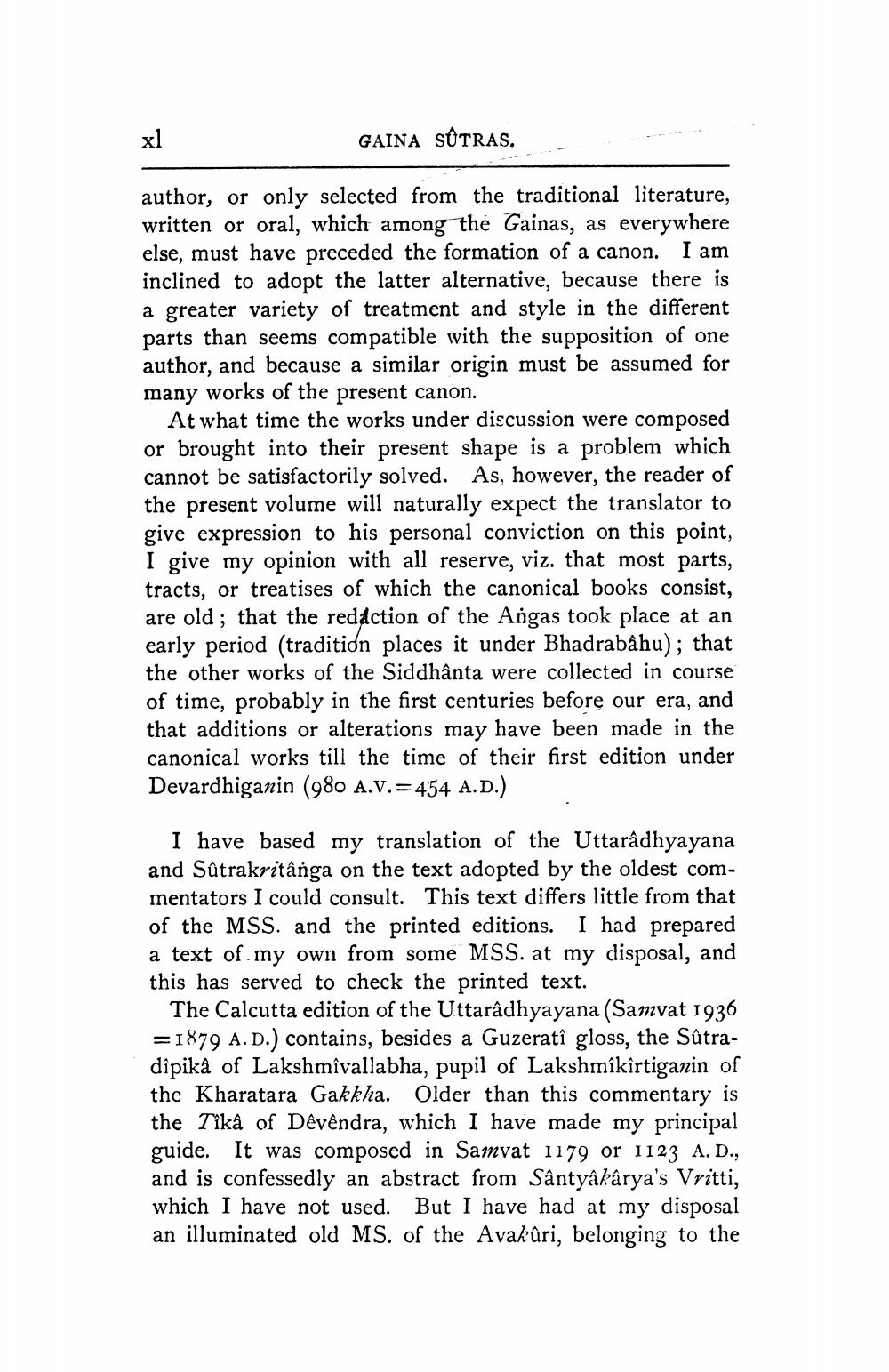________________
GAINA SÚTRAS.
author, or only selected from the traditional literature, written or oral, which among the Gainas, as everywhere else, must have preceded the formation of a canon. I am inclined to adopt the latter alternative, because there is a greater variety of treatment and style in the different parts than seems compatible with the supposition of one author, and because a similar origin must be assumed for many works of the present canon.
At what time the works under discussion were composed or brought into their present shape is a problem which cannot be satisfactorily solved. As, however, the reader of the present volume will naturally expect the translator to give expression to his personal conviction on this point, I give my opinion with all reserve, viz. that most parts, tracts, or treatises of which the canonical books consist, are old ; that the redaction of the Angas took place at an early period (tradition places it under Bhadrabâhu); that the other works of the Siddhânta were collected in course of time, probably in the first centuries before our era, and that additions or alterations may have been made in the canonical works till the time of their first edition under Devardhiganin (980 A.V.=454 A.D.)
I have based my translation of the Uttarâdhyayana and Sûtrakritânga on the text adopted by the oldest commentators I could consult. This text differs little from that of the MSS. and the printed editions. I had prepared a text of my own from some MSS. at my disposal, and this has served to check the printed text.
The Calcutta edition of the Uttarâdhyayana (Samvat 1936 =1879 A. D.) contains, besides a Guzeratî gloss, the Sûtradipikâ of Lakshmîvallabha, pupil of Lakshmîkîrtiganin of the Kharatara Gakkha. Older than this commentary is the Tìkâ of Dêvêndra, which I have made my principal guide. It was composed in Samvat 1179 or 1123 A. D., and is confessedly an abstract from Sântyâkârya's Vritti, which I have not used. But I have had at my disposal an illuminated old MS. of the Avakûri, belonging to the




